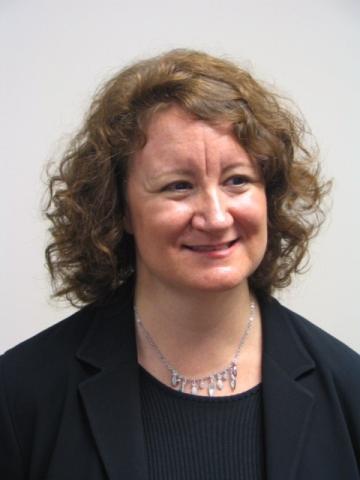How can Indigenous Peoples be supported in healing journeys without judgement?

Learning
I hear the Spirit moving through the witness of all the Indigenous Peoples I encounter, within and outside the church. I hear the Spirit calling all of us who continue to share the gospel to wrestle with the ways in which our witness to the God of love and peace continues to result in so much pain, suffering, and division. How can we do better? For we must do better. We must stop harming others.
Our theologies of ministry and mission, and the added complexity of mission and ministry across racial lines, demand critique. We can support Indigenous Peoples in their own healing journeys without judgement. The message of “why can’t you just leave us alone for a while” extends to those Indigenous Christians who are faithfully working out what it means to carry both Indigenous spiritual teachings and Christian teachings.
Accusations of syncretism are not just unhelpful but are also acts of spiritual violence and Christian supremacism. Syncretism refers to the combination of different beliefs or practices and often is used pejoratively to assert that different spiritual traditions cannot be authentically brought together. This is not to say that anything goes, but to suggest that we have all too great a tendency to be judgemental and closed to others who are in the process of discerning where the Spirit is blowing in relation to the meeting of different spiritual traditions, different experiences of the Creator. And we fail miserably in not recognizing that Indigenous and other racialized Christians approach this subject with infinite care, thoughtfulness, and rigour. To paraphrase what my friend and colleague said, “Why can’t we just give Indigenous people the space and time to work things out and have confidence in their ability as people of Spirit to respond faithfully?”
Faith Reflection
Now the eleven disciples went to Galilee, to the mountain which Jesus had directed them.… And Jesus came and said to them, “All authority in heaven and on earth has been given to me. Go therefore and make disciples of all nations, baptizing them in the name of the Father, and of the Son, and of the Holy Spirit, and teaching them to obey everything that I have commanded you. (Matthew 28:16, 18‒19)
Teacher, which commandment in the law is the greatest? He said to him, “’You shall the love the Lord your God with all your heart, and with all your soul, and with all your mind.’ This is the greatest and first commandment. And a second is like it: ‘You shall love your neighbor as yourself.’ On these two commandments hang all the law and the prophets.” (Matthew 22:36‒39)
Jesus’ last words to his disciples as recorded in Matthew 28, have been used by Christians to support our work of evangelism. Sometime in the 17th century, the words came to be described as the Great Commission. It’s important to remember that this description was applied to the text not by Jesus himself but by Christians at the historical height of Christian imperialism. The text was used to support the kind of violent conversion of people around the world that we abhor today. The question is, have we taken the trouble since that time to rethink this Great Commission in terms of what the entirety of the gospels reveal to us about what baptizing means and what making disciples means? Have we even taken the time to read this “commission” in view of what became known as the Great Commandment, as recorded in Matthew 22—which is to love our neighbours as ourselves? What does loving others who are not Christian, as we are commanded, require of us as we seek to follow Jesus?
Living It Out
Learning about Indigenous spiritual traditions can be very helpful in the work of anti-racism, healing, and reconciliation. Traditional Indigenous Elders and Knowledge Keepers are adept at welcoming strangers and making them feel comfortable. Look for opportunities in your community, such as at a Friendship Centre or at events organized by local Indigenous communities or groups, where Elders or Knowledge Keepers are teaching or leading ceremonies. Invite someone to accompany you. Try to listen as carefully as possible to what is said, and if ceremony is involved such as a smudging, observe carefully and, if you’re willing—and if you are invited—take part. While you’re in the moment, try not to compare and contrast what is going on with Christian teachings or ceremonies. Be open to the experience. Reflect on what you experienced and heard. What resonated with your heart? What questions do you have? Take a moment to think about what a person from another faith tradition might think after attending Christian worship: What might resonate for them? What might they find strange or difficult to comprehend and have questions about? Give the process time. Keep exploring with an open heart, an open mind, and an open spirit.
—Lori Ransom (she/her) serves The United Church of Canada half-time as a Reconciliation and Indigenous Justice Animator, and half-time as an Indigenous Peoples Consultant for the World Council of Churches. She is a member of the Algonquins of Pikwàkanagàn First Nation (near Eganville, Ontario) who has lived off-reserve for all of her life. Lori is biracial, also being of mixed European heritage. Lori has worked on issues relevant to Indigenous Peoples throughout her career, first with the Government of Canada, then The Presbyterian Church in Canada (her home denomination), and the Truth and Reconciliation Commission of Canada. She served briefly as Interim Executive Director of KAIROS. Lori lives in downtown Toronto, where she enjoys the city’s lively arts scene. She delights most in her role as mother to a young cockapoo named Finnegan.
This reflection originally appeared in 40 Days on Anti-Racism 2022.